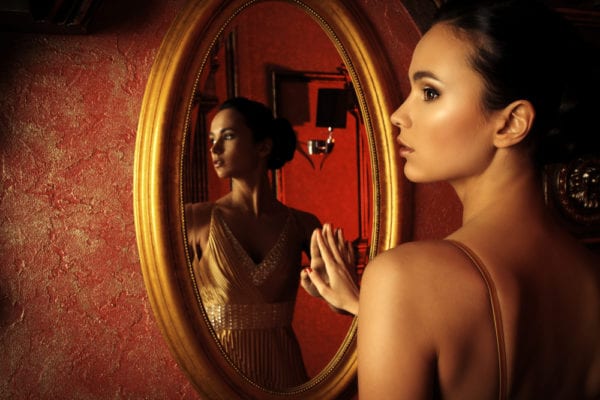My heroines: reflections of myself?
My heroines: reflections of myself?
My heroines: reflections of myself?
-
Hannah
-
Hannah


‘Every author in some way portrays himself in his works, even if it be against his will.’ So wrote Johann Wolfgang von Goethe, prolific writer of the late eighteenth and early nineteenth centuries.
I agree wholeheartedly with this statement. After all, isn’t the point of writing to express oneself? Whatever you write, it is infused with your essence, your particular take on life, your experiences and wisdom and longings and desires.
Certainly, my own fiction takes readers on journeys to places I have myself visited; read The Echoes of Love and you get a sense of how I see Venice, Italy; read my Andalucían Nights trilogy and you see why I love this region of Spain and its fiery, vibrant spirit.
You also come to know, through my writing, that I have a passion for music and drama and literature, for philosophy and mythology, for architecture and for beautiful scenery; and of course that I am a dreamer, a romantic, and eternally hopeful in the power of love to be restorative, binding and inspiring.
But what of my heroines? Are they in fact me? When I look in the mirror, do I see not only Hannah but also Coral of Burning Embers, Venetia of The Echoes of Love, and Alexandra, Luz and Luna of Andalucían Nights?
In the spring edition of The Author (the magazine for members of the British Society of Authors), writer Amanda Craig considers this question in an article entitled ‘Not I?’. She opens by considering the case last year of a journalist revealing the identity of the writer behind the pen name Elena Ferrante (see my article on the issue). The journalist in question felt there was a story to be told because the writer isn’t of the same background as her heroine. But why assume that would even be the case?
As Amanda Craig explains in the article, the assumption that a writer somehow is their hero/heroine is common. She relates stories of writers, herself included, facing personal judgment because of flaws and traits in characters, not themselves.
This is a very real issue for writers, and it’s one I face myself every time I write a new novel. I devise a heroine, making her real in my imagination, with a detailed backstory; but as I do so, I am always aware that she is tied to me, that my readers may assume she is me. That is not so difficult when you come to write of a character’s strengths – her intelligence, for example, or hardworking nature – but it can be more challenging when you are exploring her weaknesses, such as naivety or a tendency to react emotionally without thinking.
Are my heroines reflections of me? No. I don’t write autobiographies; I write novels. But as the Author article puts it: ‘… if the facts of our own lives are different, the feelings are less likely to be.’ Were I to meet each of my heroines in real life, we would connect to each other on an emotional level. I understand their feelings; I have experienced their feelings.
To return to Goethe’s quotation, we could say that every author in some way portrays his feelings in his works. To write a book with emotional resonance, you must be prepared to share something of your own experience of pain, of grief, of fear – and also of passion, of love, and of hope. In that sense, you have to be prepared to look in the mirror – which, as Sylvia Plath wrote, will ‘see [you] back, and reflect it faithfully’ – but look past the physical, right into the eyes: the windows of the soul.
This is a blog worth saving. I never assume I know an author based on the stories, but there are authors I have know for decades through their work and correspondence. I have a reasonable belief that I know something about them. Your Andalucian Trilogy lets me know that you share a love for Spain. If I lived anywhere other than The USA I would live either in Spain or Chile.
Thanks for commenting. I think it’s always safe to assume that was is written about with passion is a passion for the author, and as you know I just love to travel and explore other cultures and sceneries. There are other countries I would live in too; but then I count myself lucky to be able to divide my time between two, Ireland (currently) and France.